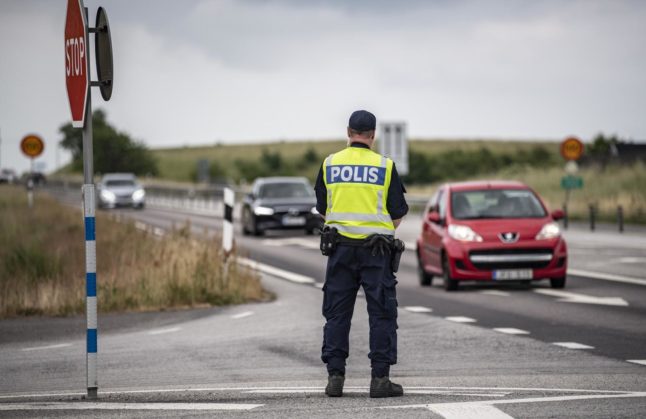How do fines work in Sweden?
The two most common types of fine are penningböter (a fixed amount of money) and dagsböter (which vary depending on your income and the severity of the crime committed).
There is a third type of fine, normerade böter, which are rare. These are usually calculated based on some aspect of the crime committed – like the value of an item stolen or damaged, or the horsepower of a motor involved in the crime, for example.
Who can issue these fines?
Fines in Sweden can be issued by four different authorities: the courts, the police, customs and the coast guard.
Things like parking fines, fines for using public transport and library fines do also exist, but, legally speaking, they’re technically fees – kontrollavgifter or straffavgifter, rather than fines – böter. This is important, as true fines will leave you with a mark on your criminal record, while fees do not (although if you don’t pay them you may be issued with a black mark on your credit record).
Police and customs issue a type of penningböter (fixed fines) which are known as ordningsböter. If you’re given one of these fines and you admit to the crime straight away, then you essentially skip going through the courts and your fine is issued directly by the police instead of being issued by a judge in court.
Ordningsböter can be issued for things like not being able to present your drivers licence or other ID when you’re driving a car (500 kronor), not having insurance on your moped (500 kronor), or antisocial behaviour in public spaces through, for example, urinating (800 kronor) or playing loud music (1,000 kronor).
As a general rule, fixed fines are issued for less serious crimes. They can vary in size from a minimum of 200 kronor to a maximum of 4,000 kronor per crime, while the maximum amount which can be issued at one time for multiple crimes is 10,000 kronor. These fines vary in size depending on the severity of the crime rather than the income of the person who has committed it.
Income-based fines or dagsböter (literally: “daily fines”) are issued for more serious crimes, like grievous bodily harm, theft, animal abuse, damage to property or taking pictures of classified buildings, so you’re not going to be issued one just for driving slightly over the speed limit.
How are dagsböter calculated?
They’re made up of two numbers. The first is the amount of fines issued, which varies depending on the severity of the crime (between 30 and 150, or 200 if they are being sentenced to fines for multiple crimes at once), and the second is the value of each fine, which depends on the income of the person charged, but must be between 50 and 1,000 kronor.
This means that the lowest possible daily fine is 30 fines of 50 kronor each, or 1,500 kronor, while the highest is 200 fines of 1,000 kronor each, or 200,000 kronor.
As a general rule, one daily fine is meant to be equivalent to one thousandth of the yearly income of the person charged, taking into account other aspects of their personal finances like debts, savings and anyone else they have to support financially. This means that two people committing the same crime can be sentenced to different fines.
Let’s say two people get in a fight and are sentenced to 80 daily fines each. The first one has no income, so their fine value is set at the minimum (50 kronor per daily fine) meaning they pay a total of 4,000 kronor. The other has a high yearly income, so their daily fine is set to 500 kronor, putting their total fine at 40,000 kronor, despite being sentenced for exactly the same crime.
Despite the name, daily fines are not paid by day, but they’re paid as a lump sum within 30 days from the date at which the sentence becomes legally binding. If the perpetrator of a fine refuses to pay, their fine will be passed on to the Enforcement Agency (Kronofogden), who have the power to seize and sell their assets to cover it.
If they refuse to pay the fine despite being financially able to, they can be sentenced to prison for anywhere between two weeks to three months.



 Please whitelist us to continue reading.
Please whitelist us to continue reading.
Member comments